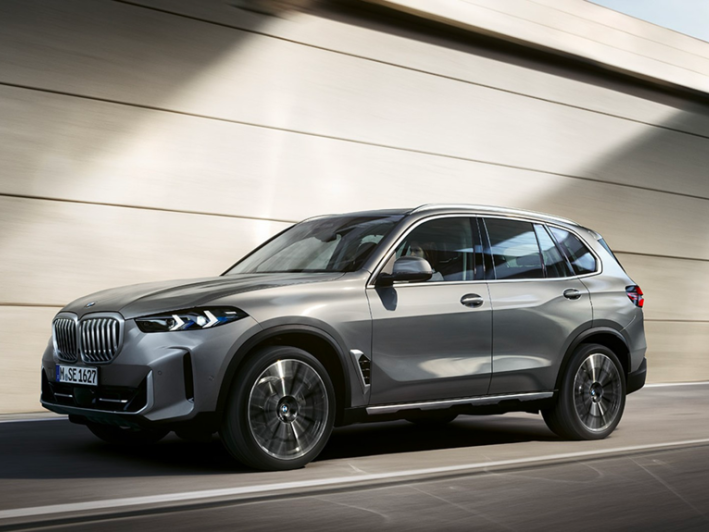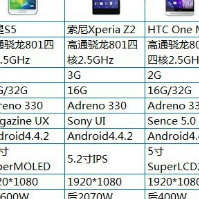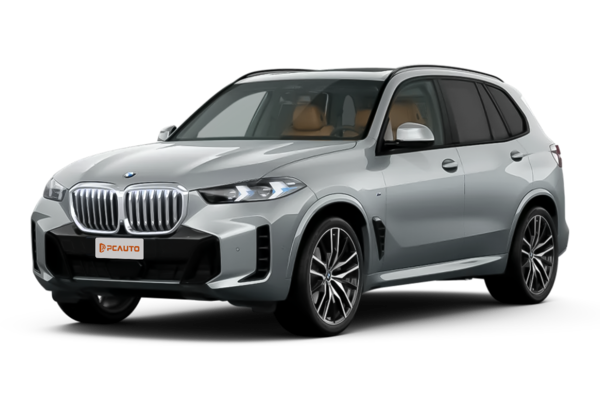Q
what type of oil for bmw x5
When it comes to choosing oil for your BMW X5, you'll want to go with stuff that meets BMW's Longlife certifications—think BMW Longlife-01 or Longlife-04. Which one exactly? That depends on your model year and engine type. Generally speaking, 5W-30 or 0W-40 full synthetic oils are the usual go-tos, but your best bet is to check the owner's manual or hit up a BMW authorized service center to nail down the perfect viscosity and spec for your ride.
Here in Malaysia's tropical weather, the heat and humidity can really put oil through its paces. That's why shelling out for a good quality full synthetic is non-negotiable. It'll hold up better under high temps, keep things lubricated properly, and help your engine last longer. And don't forget—regular oil and filter changes are the bread and butter of engine health. Typically, you're looking at every 10,000 kilometers or 12 months, but always adjust based on how you drive and what the manufacturer recommends.
Oh, and it pays to know what those oil numbers mean. Take 5W-30, for example: the "5W" is all about cold-weather flow—smaller number means easier starts on chilly days. The "30" is the hot viscosity; a higher number here translates to better protection when things get toasty under the hood. Picking the right oil isn't just about a smoother drive; it's about protecting your engine and saving yourself from avoidable repair bills down the line.
Special Disclaimer: This content is published by users and does not represent the views or position of PCauto.
Related Q&A
Q
What is the top speed of the 2019 BMW X5?
The top speed of the 2019 BMW X5 varies depending on the powertrain. The xDrive40i, equipped with a 3.0-liter turbocharged inline-six, is electronically limited to 250 km/h (155 mph), while the more potent M50i—with its 4.4-liter twin-turbo V8—hits the same 250 km/h cap but delivers noticeably quicker acceleration. Opting for the M Sport package’s "Driver’s Package" raises the limiter to 270 km/h (168 mph), though this requires upgraded tires and brakes to handle the extra speed.
Like most German luxury cars, the X5’s speed governor balances performance with safety while protecting the drivetrain from excessive wear. Though not as fast as BMW’s sedans, the X5 remains impressively stable at high speeds thanks to its xDrive all-wheel-drive system and adaptive suspension—making it a confident long-distance cruiser. For owners looking to exploit its performance, regular maintenance (especially brakes and tires) is key to keeping everything safe and road-ready.
Q
What is the difference between 2019 and 2020 BMW X5?
The key differences between the 2019 and 2020 BMW X5 lie in upgraded tech and features. For the 2020 model year, BMW made more equipment standard in certain markets—like the 12.3-inch digital instrument cluster and iDrive 7.0 infotainment with its more intuitive interface. Some variants also received enhanced driver assists, including improved lane-keeping and adaptive cruise control.
Visually, they’re nearly identical, though the 2020 version added optional wheel designs and paint choices. Under the hood, both years pack the same 3.0L turbocharged inline-six or 4.4L V8, but the 2020 tune prioritized slightly better fuel efficiency. BMW also retuned the suspension for sharper handling without sacrificing comfort.
For used-car shoppers, the 2020 X5’s extra kit might translate to marginally stronger resale value, though your budget and needs should dictate the choice. As a luxury midsize SUV, the X5 has always delivered driving thrills and premium comfort—both model years ace daily duties and road trips. The 2020 just edges ahead with tech perks.
Q
Is 2019 a good year for a BMW X5?
The 2019 BMW X5 is a well-rounded luxury SUV that delivers strong performance. Under the hood, its 3.0T inline-six packs plenty of punch, paired with an 8-speed automatic transmission for smooth and responsive driving dynamics. Built on the CLAR platform, it sheds weight while improving chassis rigidity—resulting in noticeably better handling and comfort.
Inside, the X5 features dual 12.3-inch digital displays (instrument cluster and infotainment) running BMW’s iDrive 7.0, giving the cabin a high-tech vibe. Fit and finish live up to the brand’s reputation for premium materials. Safety-wise, it comes standard with active braking, lane-keeping assist, and other driver aids that boost confidence behind the wheel.
For used-car shoppers, the 2019 X5 holds its value decently, but always check service records and mileage—especially for wear-prone components like the air suspension. Practicality is another strong suit, with ample space for families. If you find a well-maintained example at a fair price, this generation remains a solid pick. Just get a pre-purchase inspection to avoid surprises.
Q
How much horsepower does a 2019 BMW X5 have?
The 2019 BMW X5 offers a range of horsepower outputs across different powertrain configurations. The xDrive40i features a 3.0-liter inline-six turbocharged engine, delivering 335 horsepower and 450 Nm of torque. For those craving more performance, the xDrive50i packs a 4.4-liter V8 twin-turbocharged engine, churning out 456 horsepower and 650 Nm of torque. Opt for the plug-in hybrid xDrive45e, and you’ll get a combined output of 389 horsepower.
These powertrains ensure the X5 delivers strong performance without compromising everyday comfort. As a luxury SUV, the X5’s engineering focuses not just on power but also efficiency—thanks to technologies like TwinPower Turbo and lightweight construction, which enhance fuel economy while preserving driving dynamics.
If you’re into premium SUVs, it’s worth cross-shopping rivals in this segment. But the X5 has always stood out for its balance of power and handling, making it a solid pick for drivers who prioritize engagement behind the wheel.
Q
What generation is the 2019 BMW X5?
The 2019 BMW X5 represents the fourth generation (codenamed G05) of this iconic SUV. Built on the CLAR modular platform, the G05 delivers notable upgrades in weight reduction, tech features, and powertrain over its predecessor.
Visually, it sports larger kidney grilles and sharper body lines. Inside, you'll find a 12.3-inch digital instrument cluster and touchscreen infotainment system, debuting BMW's iDrive 7.0 with gesture control and voice assistant support.
Under the hood, the 2019 lineup offers multiple options: a 3.0T inline-six (xDrive40i), a 4.4T V8 (xDrive50i), and a plug-in hybrid variant (xDrive45e)—all paired with an 8-speed Steptronic transmission and xDrive all-wheel drive.
For the first time, BMW introduced an optional Off-Road Package featuring a rear differential lock and multiple terrain modes, boosting its rough-road capability. The G05 also marks BMW's first SUV with available laser headlights, boasting a 500-meter range. Plus, with a 30% stiffer chassis compared to the previous model, it delivers sharper handling and enhanced safety.
Q
How fast is the 2019 BMW X5?
The 2019 BMW X5 delivers impressive performance, with acceleration varying by engine choice. The range-topping X5 M50i packs a 4.4-liter V8 twin-turbocharged engine that rockets from 0-100 km/h in just 4.7 seconds, while the electronic limiter kicks in at 250 km/h. The entry-level xDrive40i, equipped with a 3.0-liter inline-six turbo, hits 100 km/h in 5.5 seconds with the same governed top speed – seriously quick for a midsize luxury SUV.
Beyond straight-line speed, the X5 features BMW's advanced xDrive all-wheel-drive system and adaptive suspension, ensuring composed handling and comfort across all road conditions. Multiple drive modes (Sport, Comfort, and Eco Pro) let you tailor the driving experience. What really stands out is the near-perfect 50:50 weight distribution – a signature BMW trait that keeps this tall SUV surprisingly agile through corners without sacrificing driving enjoyment.
Q
How much does it cost to replace the engine in a BMW X5 2019?
"The cost to replace a 2019 BMW X5 engine typically ranges between RM60,000 to RM150,000, depending on the engine type, whether you go for OEM or refurbished parts, and the labor charges at your chosen workshop. A brand-new factory engine costs more but comes with a warranty, while third-party rebuilt or used engines can save you money—just watch out for quality risks.
The X5’s B58 inline-six or N63 V8 turbocharged engines are complex beasts. When swapping them, it’s smart to also inspect the turbo system, cooling module, and related piping to avoid future headaches. If your car’s still under factory warranty, check with an authorized dealer first—you might qualify for partial or full coverage.
For high-mileage X5s with severe oil consumption or rod knock, a full engine replacement often makes more sense than a rebuild. But don’t skip the details: ensure proper ECU coding and chassis number updates, and pick a shop with BMW-specific diagnostic tools to avoid compatibility nightmares.
Pro tip? Stick to LL-04-approved oil and fix coolant leaks promptly—it’s cheaper than a new engine."
Q
Is the 2019 BMW X5 a good SUV?
The 2019 BMW X5 is a well-rounded SUV that delivers an exceptional driving experience, upscale interior, and cutting-edge tech—earning widespread praise. Under the hood, its 3.0-liter turbocharged inline-six packs plenty of punch while maintaining decent fuel efficiency, making it great for both daily commutes and road trips. Inside, you’ll find premium materials, a slick 12.3-inch infotainment screen with iDrive, and a spacious cabin (especially the rear seats and cargo area) that caters to families. Safety-wise, it comes loaded with driver-assist features like automatic emergency braking and lane-keeping assist. One heads-up, though: some owners note higher maintenance costs—a common trade-off for luxury vehicles. If your budget allows and you value brand prestige plus driving dynamics, the 2019 X5 is a solid pick. Its handling stands out in its class, perfect for drivers who crave engagement behind the wheel.
Q
What kind of engine is in the BMW X5 2019?
The 2019 BMW X5 offers a range of engine options to suit different driving preferences. The gasoline lineup includes the xDrive40i, powered by a 3.0-liter turbocharged inline-six delivering 335 hp and 450 Nm of torque. For those seeking more performance, the xDrive50i packs a 4.4-liter twin-turbo V8, churning out 456 hp and 650 Nm. There's also the plug-in hybrid xDrive45e, which combines a 3.0-liter six-cylinder engine with an electric motor for a total system output of 394 hp and an all-electric range of around 80 km.
All variants come paired with an 8-speed Steptronic automatic transmission, ensuring smooth shifts and efficient power delivery. BMW's TwinPower Turbo technology helps deliver strong low-end torque while improving fuel efficiency and throttle response.
The plug-in hybrid is a solid pick for eco-conscious buyers, blending zero-emission driving for daily commutes with the flexibility of a gas engine for longer trips. Maintenance-wise, regular checks on the turbocharging system and battery pack are recommended to keep everything running smoothly for the long haul.
Q
What type of oil does a 2019 BMW X5 use?
**BMW X5 (2019) Oil Recommendation**
For optimal performance, your BMW X5 requires a full synthetic oil that meets BMW’s **Longlife-01** or **Longlife-04** certification. The recommended viscosity is typically **5W-30** or **0W-30**, but the best choice depends on your engine type and driving conditions. In hotter climates, a **0W-40** oil may offer better high-temperature stability.
Stick to **genuine BMW oil** or trusted brands like **Shell, Mobil 1, or Castrol** that meet BMW’s specs—this ensures top-tier engine protection. Oil changes are crucial: aim for every **10,000–15,000 km (or 12 months)**, but always check your owner’s manual for exact intervals.
Full synthetic oils reduce wear, boost fuel efficiency, and extend engine life—especially important for turbocharged models. **Diesel engines** may need different oil specs, so consult your dealer or a certified mechanic to confirm the right product.
*Pro tip:* Don’t cut corners on oil quality—your X5’s engine deserves the best.
Popular Cars
Model Year
Car Compare
Car Photo
Latest Q&A
Q
Do I need an alignment after rotation?
Whether a four-wheel alignment is needed after tire replacement depends on the actual condition of the vehicle. If only the tires are replaced and the vehicle has been driving normally without deviation, steering wheel vibration, or uneven tire wear, a four-wheel alignment is usually not required immediately, but wheel balancing must be performed to ensure stability when the wheels rotate at high speeds. However, if problems such as directional deviation, reduced steering precision, misaligned steering wheel, or abnormal tire wear (e.g., one-sided wear) occur after tire replacement, four-wheel alignment is necessary to adjust the geometric parameters of the suspension system (including caster angle, front wheel camber, etc.), thereby restoring the vehicle's straight-line driving stability and uniform tire contact with the road. Moreover, if chassis component repairs (such as suspension or steering system) are involved during tire replacement or the vehicle has been in a collision, four-wheel alignment becomes an essential step, as it can effectively reduce abnormal tire wear, improve handling safety, and lower fuel consumption. It is recommended to check the alignment parameters regularly every 20,000 kilometers or once a year. If you frequently encounter rough road conditions (such as curbs or speed bumps) during daily driving, the inspection interval should be shortened accordingly. Professional technicians can measure the data using specialized equipment and compare it with the manufacturer's specifications to determine whether adjustments are needed.
Q
Is it okay to rotate tires every 10,000 km?
Rotating tires every 10,000 kilometers is a reasonable and necessary maintenance measure, especially for fuel vehicles, as this frequency can effectively balance the wear difference between front and rear tires. Tire rotation involves regularly adjusting the installation positions of tires (e.g., moving front tires to the rear), which ensures more uniform wear across all tires, thereby extending the overall service life by approximately 20%-30%. For fuel vehicles, it is recommended to rotate tires every 10,000 kilometers, while for new energy vehicles, due to their greater weight and stronger torque output, the interval should be reduced to 8,000 kilometers. During rotation, the cross-rotation method should be employed (i.e., moving front tires to the opposite rear positions), and tire pressure should be checked simultaneously to ensure it meets the specified standards (2.3-2.5 bar for fuel vehicles, with an additional 0.2 bar for new energy vehicles). It is important to note that if a tire exhibits abnormal unilateral wear, bulges, or tread depth below 1.6 millimeters, simple rotation is not recommended and the tire should be replaced immediately. Regular monthly tire pressure checks and removal of debris from treads can further enhance tire performance and safety.
Q
What happens if you don't rotate tires?
If tire rotation is not performed regularly, it will lead to uneven tire wear, which in turn causes multiple problems. For front-wheel-drive vehicles, the front tires bear both driving and steering functions, so their wear rate is significantly faster than that of the rear tires; for rear-wheel-drive vehicles, since power is concentrated on the rear tires, the rear tires wear more noticeably. Long-term failure to rotate tires will shorten the overall tire life by 20%-40%—the front tires may be scrapped prematurely while the rear tires remain relatively new, resulting in resource waste. In addition, uneven wear reduces traction, particularly on wet surfaces, which can easily lead to skidding or a 10%-15% increase in braking distance, thereby elevating driving risks. Irregular wear also exacerbates tire noise and increases fuel consumption by 0.3-0.8 liters per 100 kilometers due to uneven rolling resistance. It is recommended to rotate tires every 10,000 to 15,000 kilometers. For front-wheel-drive vehicles, the cross-rotation method should be employed (left front to right rear, right front to left rear), while for rear-wheel-drive vehicles, the rear tires need to be crossed to the front. After rotation, tire pressure (the standard value typically ranges from 2.3 to 2.6 bar) should be verified and wheel balancing performed to prevent high-speed vibrations. If the tires exhibit irregular wear patterns or the tread depth falls below 1.6 mm, they should be replaced immediately. Regular tire rotation not only prolongs tire lifespan but also enhances fuel efficiency and driving safety. The cost of a single rotation is approximately 50 to 100 ringgit, substantially lower than the expense of premature tire replacement.
Q
Is it good to rotate car tires?
Tire rotation is an important maintenance measure to ensure even tire wear and extend service life. It is recommended to perform it every 5,000 to 10,000 kilometers or when uneven wear is detected. For front-wheel drive vehicles, the front tires wear faster as they handle steering and braking tasks, so they need to be cross-rotated with the rear tires (left front to right rear, right front to left rear). For rear-wheel drive vehicles, the rear tires should be diagonally swapped with the front tires to balance the wear of the drive wheels. If the tires have a directional tread pattern or asymmetric design, the rotation direction must be maintained, and only front-to-rear swaps on the same side are allowed to avoid affecting handling on wet and slippery roads. After rotation, the tire pressure should be adjusted to the standard for the corresponding wheel position, and it is recommended to perform dynamic balancing and four-wheel alignment simultaneously to optimize driving stability. Note that snow tires or studded tires cannot be rotated, and tires with different front and rear sizes can only be swapped left and right. Regular rotation can reduce abnormal wear (such as uneven wear or wavy patterns), improve grip and driving quietness, reduce safety hazards caused by tire problems, and save replacement costs in the long run. The specific operation should be based on the vehicle manual. If there is a lack of guidance, the cross-rotation method for bias-ply tires or the same-side rotation method for radial tires can be prioritized.
Q
How often should car tyres be rotated?
The replacement cycle of car tires should be determined by comprehensively considering factors such as service life, mileage, driving habits, and environmental conditions. Generally, it is recommended to replace them every 3 to 5 years or after 60,000 to 80,000 kilometers of driving, whichever comes first. As rubber products, tires deteriorate over time. Even if the mileage threshold hasn't been reached, immediate replacement is necessary when sidewall cracks, bulges appear, or tread depth falls below 1.6 mm (verifiable with a coin test) to ensure safety. Due to their heavier weight and stronger torque output, new energy vehicles experience accelerated tire wear. It is advisable to shorten the inspection interval to every six months, with urban commuting replacement mileage typically ranging from 42,000 to 56,000 kilometers. Regular tire rotation helps distribute wear evenly. For front-wheel-drive vehicles, front-to-rear rotation every 8,000 to 10,000 kilometers is recommended, while for new energy vehicles with higher front axle loads, this interval can be reduced to 6,000 to 8,000 kilometers. Additionally, maintaining cold tire pressure at 2.3 to 2.5 bar (add 0.2 bar for new energy vehicles) and avoiding aggressive maneuvers like rapid acceleration and hard braking can extend tire lifespan by 15% to 20%. Tires exceeding 6 years from their production date (identifiable via the DOT code on the sidewall) should be replaced regardless of apparent condition.
View MoreRelated News

BMW X5 will become BMW's first model equipped with a hydrogen fuel cell, with a range of 504 kilometers
JamesSep 8, 2025

How strong is the overall strength of the BMW X5 that it even makes the wealthy give up the Benz GLE and Audi Q7?
RobertSep 25, 2024

The 2024 BMW X5 xDrive50e is priced at RM 528,100, with 0-100km/h just taking 4.8 seconds
LienJun 26, 2024

The all-new BMW i5 eDrive40 M Sport Pro lands in Malaysia
LienJan 16, 2026

Audi RS6 sedan version may return to compete fully with the BMW M5
WilliamNov 21, 2025
View More


















Pros
Cons